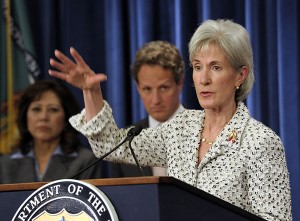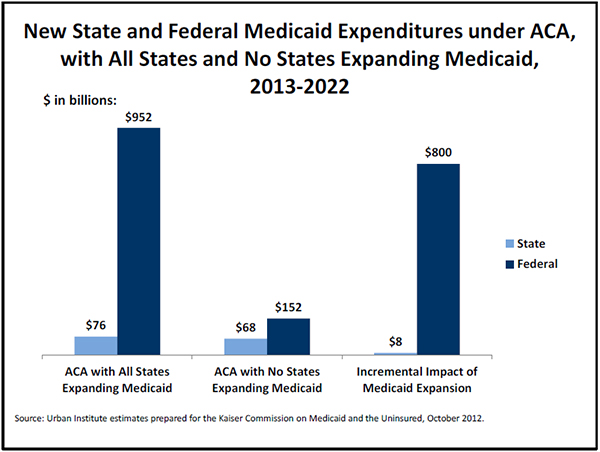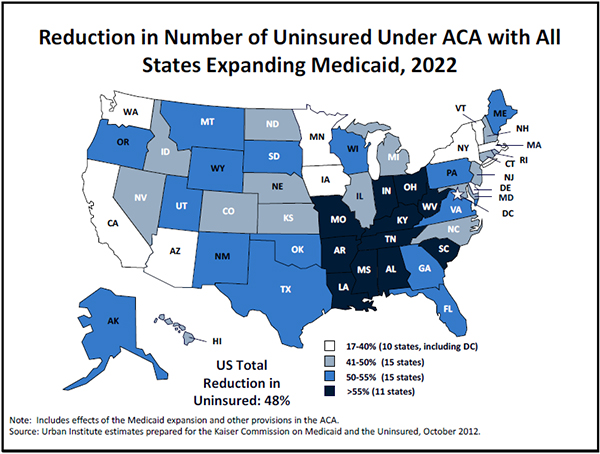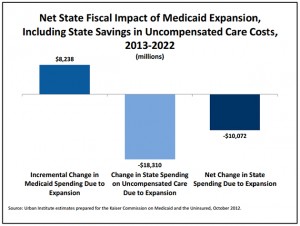
Some state governors have submitted requests to President Obama's Human Services Secretary Kathleen Sebelius, right, asking for more information about how the Medicaid expansion will affect their state. (AP Photo/Susan Walsh, File)
Although Obamacare will have a hefty price tag, most of the burden will be carried by the federal government. If every state accepted the Medicaid expansion, an additional 21.3 million people would be enrolled by 2022, increasing the number of Americans on Medicaid by 41 percent. In combination with other ACA provisions, it would decrease the total amount of uninsured Americans by 48 percent. States will also see an increase in Medicaid expenses, as the chart below demonstrates, over the next decade a state’s decision to opt in or out of the expansion will not significantly increase state Medicaid spending.

(The Kaiser Family Foundation)
Initially, the federal government will cover 100 percent of the cost of the Medicaid expansion. That figure drops to 95 percent in 2017 and 90 percent in 2020. The resulting decreases in federal spending add up to $8 billion that states would have to pay over the next decade, as shown in the chart above.
Because increasing the number of Americans on Medicaid will decrease uncompensated care costs — as well as discounts on medical care for uninsured patients given by health care providers or state governments — some states may actually save money from the expansion. The chart to the right shows that if all states opt into the Medicaid expansion, states will save $18 billion in uncompensated care costs. That would mean that, considered together, American states would save $10 billion from the Medicaid expansion. But because each state offers different uncompensated care programs and has a different number of uninsured residents, the cost or savings on the expansion will differ from state to state. Individual states may not end up saving more than they spend.
(The Kaiser Family Foundation)
Many of the states that are likely to reduce their uninsured populations by more than 50 percent are also the states where governors are wary of the cost of the expansion and are considering opting out. But the Kaiser analysis also demonstrates that even if every state opted out of the expansion, the number of Americans on Medicaid under the ACA will still increase because other ACA-related programs (such as the health care exchange) will encourage uninsured Americans already eligible for Medicaid to enroll in the program.
For more, check out Wonkblog’s analysis of the Kaiser report, or read the report itself.


